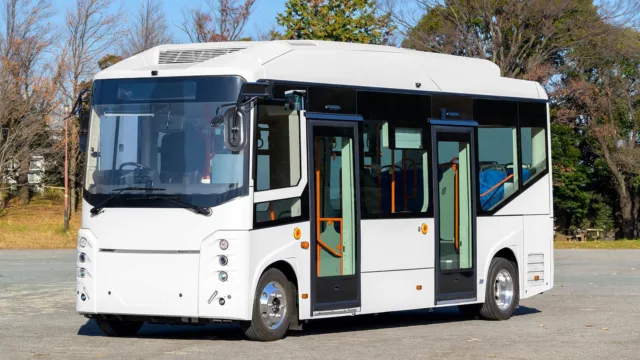
Support CleanTechnica’s work through a Substack subscription or on Stripe.
On Thursday, October 2, a consortium comprised of BYD, MKX Technologies, and Zhidao Network Technology was awarded a contract with Singapore’s Land Transport Authority (LTA) for autonomous buses to start driverless public operation in the second half of 2026. BYD currently has over 300 electric buses in operation or on order in Singapore. The initial pilot phase will add 6 autonomous vehicles alongside existing buses on the 191 and 400 lines, with potential to add another 14 buses in the trial phase. However, this could increase rapidly, with the LTA planning to have 100–150 autonomous vehicles on the road. As CNA reports:
“This phased approach enables LTA to progressively scale up the deployment of autonomous buses, while ensuring bus operations remain reliable and safe… AV buses will complement existing buses, allowing us to maintain routes with lower ridership or introduce new services that are hitherto difficult to introduce due to manpower constraint.”
The bus model is anticipated to be similar to the J6 (seen above), which launched in Kyoto in 2021 to build the first all-electric loop line in Japan. The small bus, roughly 6 meters long, was developed for the tight, congested streets of Japan, but would be suitable for other areas where speeds are low but space is limited. Combined with autonomous operation, these smaller buses could increase frequency over larger vehicles. It might not look like a retro-futuristic toaster, but the design is functional and intended to provide maximum space in a minimal footprint.
It should be noted that this is not BYD’s first overseas autonomous bus. In 2021, BYD conducted a trial program with ANA to operate autonomous busses at Haneda Airport in Tokyo, Japan. In 2022, BYD’s J6 was announced as one of the vehicles to start autonomous operation at Hong Kong International Airport. Hong Kong’s efforts to go driverless have not been seamless, with crashes from buses provided by competitor Skywell. However, BYD vehicles have developed a track record for safe autonomous operation. In addition, BYD’s partner in the contract, Zhidao, has previously deployed autonomous buses in Beijing, Dali, Shanghai, and Tianjin. According to LTA, “The consortium awarded the contract has proven track records overseas in deploying autonomous bus services on public roads with mixed traffic and remote operations.”
The autonomous buses for Singapore will use more advanced systems, integrating cameras, radar, LiDAR and remote operation capability. However, safety is still the top concern for a bus operating on city streets, and LTA is performing “rigorous testing.” Initial phases will run on a closed loop to assess the bus’s capabilities with a safety operator onboard. From that first trial phase, the bus will move to a remote monitor from a control center, with the onboard safety operator replaced by a customer service operator.
Are Driverless Buses Headed for Your City?
When dealing with mass transit, regulators tend to err on the side of caution. Not only are the lives of passengers at stake, but the large vehicles can cause significant destruction in crashes. We have been able to operate aircraft autonomously for some time now, but we are not likely to see empty cockpits in commercial aircraft any time soon. Human operators offer a level of redundancy, even when software is doing most of the work. We may see driverless buses become more common over the next few years. However, a bus driver needs to protect passengers from both accidents and other passengers. As such, it might be some time before buses only filled with passengers become common in places like NYC. That said, even if buses do not go driverless, ADAS systems have the potential to improve safety, as seen on new BYD models launching at Bus World.
While this isn’t the first autonomous bus, the LTA contract in Singapore is significant due to the driverless buses operating on regular bus routes on public roads. Due to the dense environment, short distances, and slow speeds, Singapore is likely a good fit for early autonomous buses. Their customer demands, orderly culture, labor costs, and skilled labor shortage also make them a good fit. This could just be the start of an autonomous bus transformation in their market.
How autonomous buses roll out elsewhere is another question. For those not in Singapore, could you see autonomous buses taking off in your market?
Sign up for CleanTechnica’s Weekly Substack for Zach and Scott’s in-depth analyses and high level summaries, sign up for our daily newsletter, and follow us on Google News!
Have a tip for CleanTechnica? Want to advertise? Want to suggest a guest for our CleanTech Talk podcast? Contact us here.
Sign up for our daily newsletter for 15 new cleantech stories a day. Or sign up for our weekly one on top stories of the week if daily is too frequent.
CleanTechnica uses affiliate links. See our policy here.
CleanTechnica’s Comment Policy






